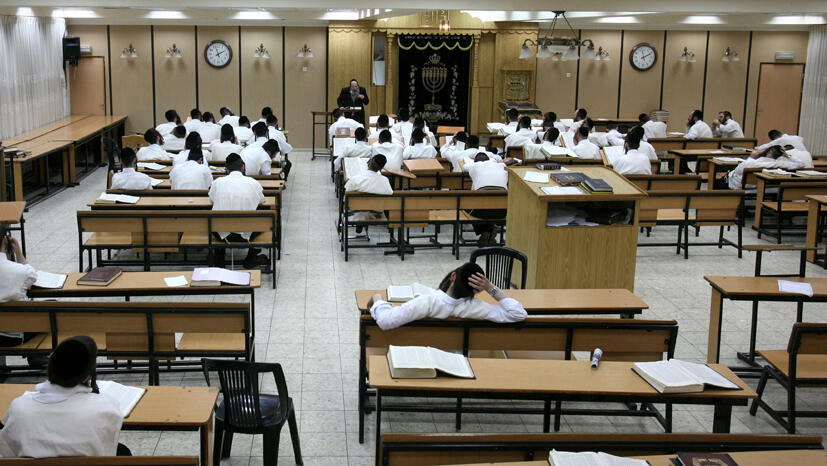Getting your Trinity Audio player ready...
Finance Minister Avigdor Liberman on Tuesday offered ultra-Orthodox men an incentive to join the workforce by halving the hours spent in religious study in return for the same state stipend, although the plan was condemned by community leaders.
Around half of ultra-Orthodox men work, with the rest studying for 40 hours a week in yeshivas — a practice dating back to the formation of the state of Israel when they were allowed to forego work and military service as their population was small.
2 View gallery


Around half of ultra-Orthodox men work, with the rest studying for 40 hours a week
(Photo: Amit Shabi)
But the Bank of Israel and economic leaders have warned of long-term strains on the budget if they are not integrated into the workforce — especially with the ultra-Orthodox population forecast to grow from 12.6% last year to 32% by 2065.
Under his plan, Liberman — who has long believed ultra-Orthodox men should earn a living not based on handouts — said he would cut the hours men spend studying to 20, while still giving them the same state stipend.
"This will allow them to go to work," he said.
Liberman has already proposed requiring both parents being employed to receive state subsidies for child daycare.
Many ultra-Orthodox families are large, and are often supported by women, of which 78% hold jobs.
Moshe Gafni, the head of the United Torah Judaism party, responded to his plan by calling him a "big fool", while others said the minister did not care about their wellbeing.
Liberman said he wanted to help ultra-Orthodox children, in contrast to their leadership "who want to keep them in poverty".


